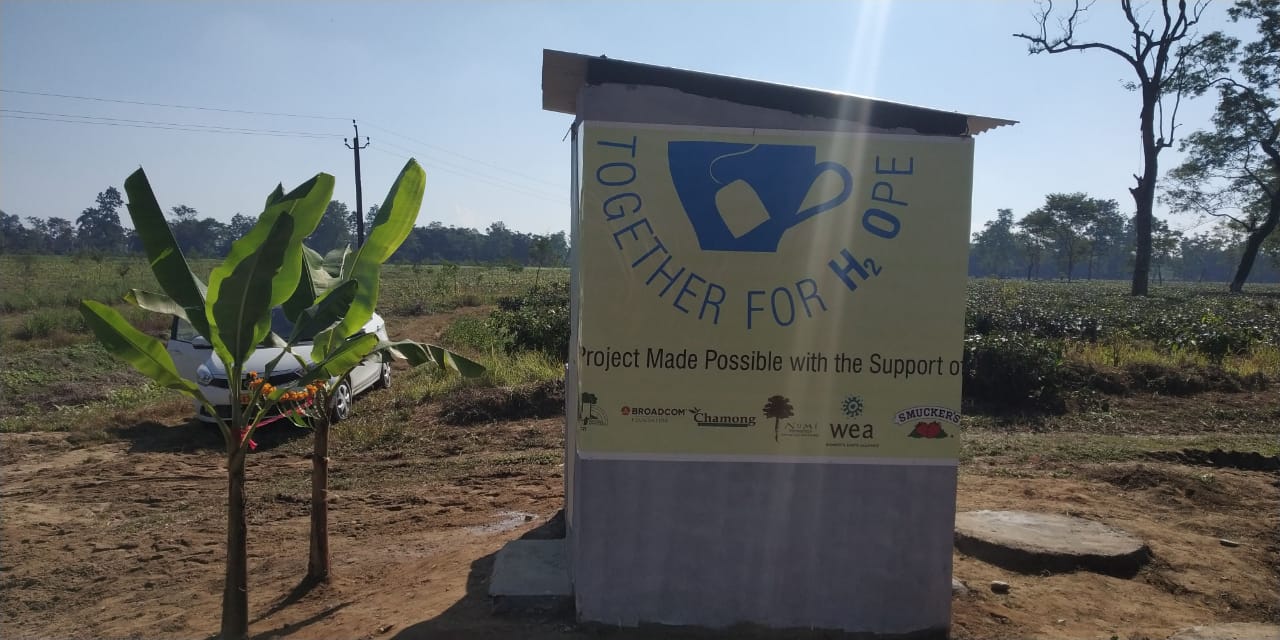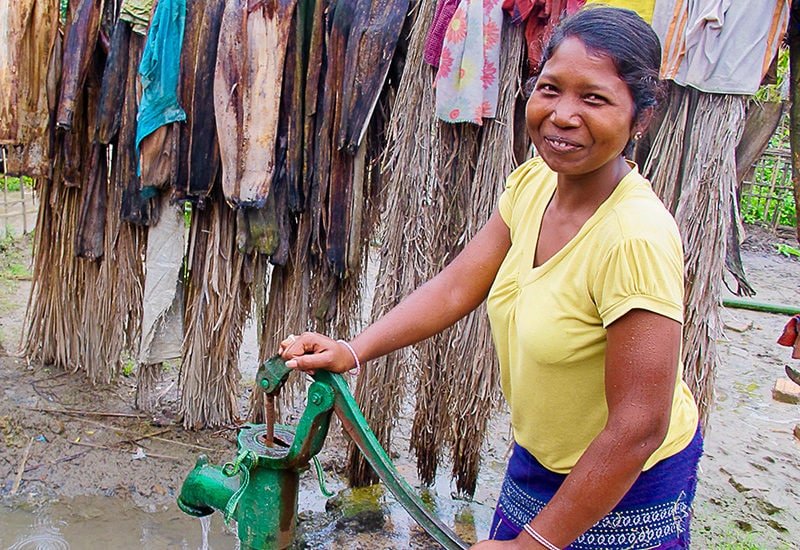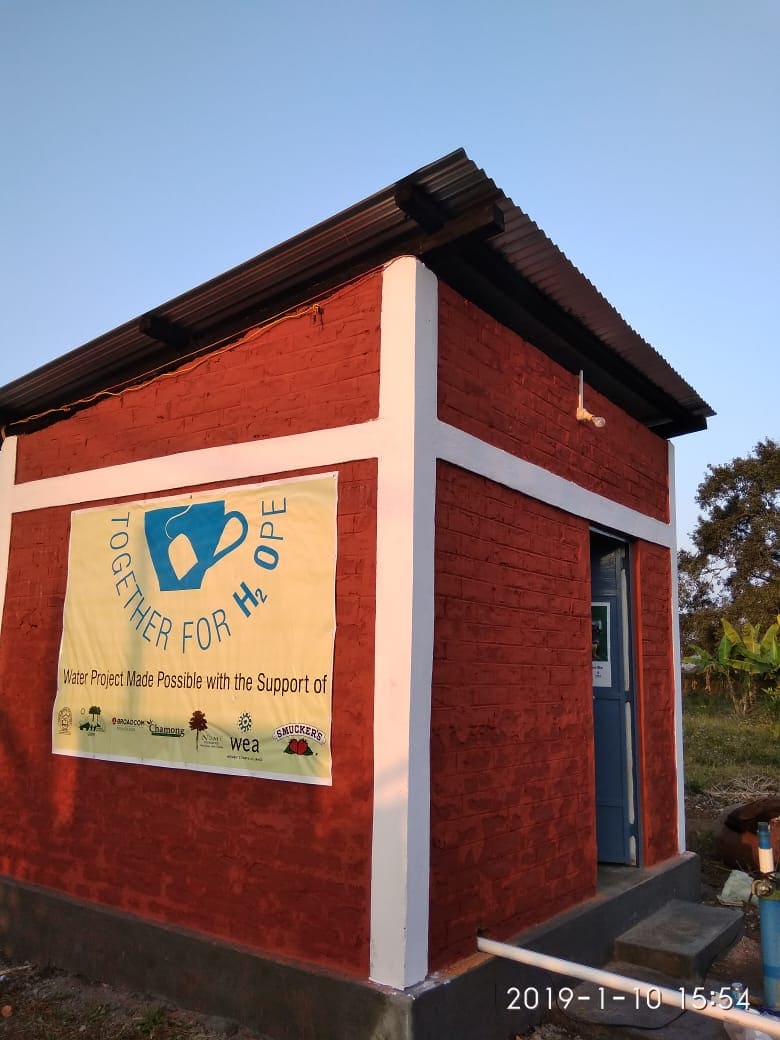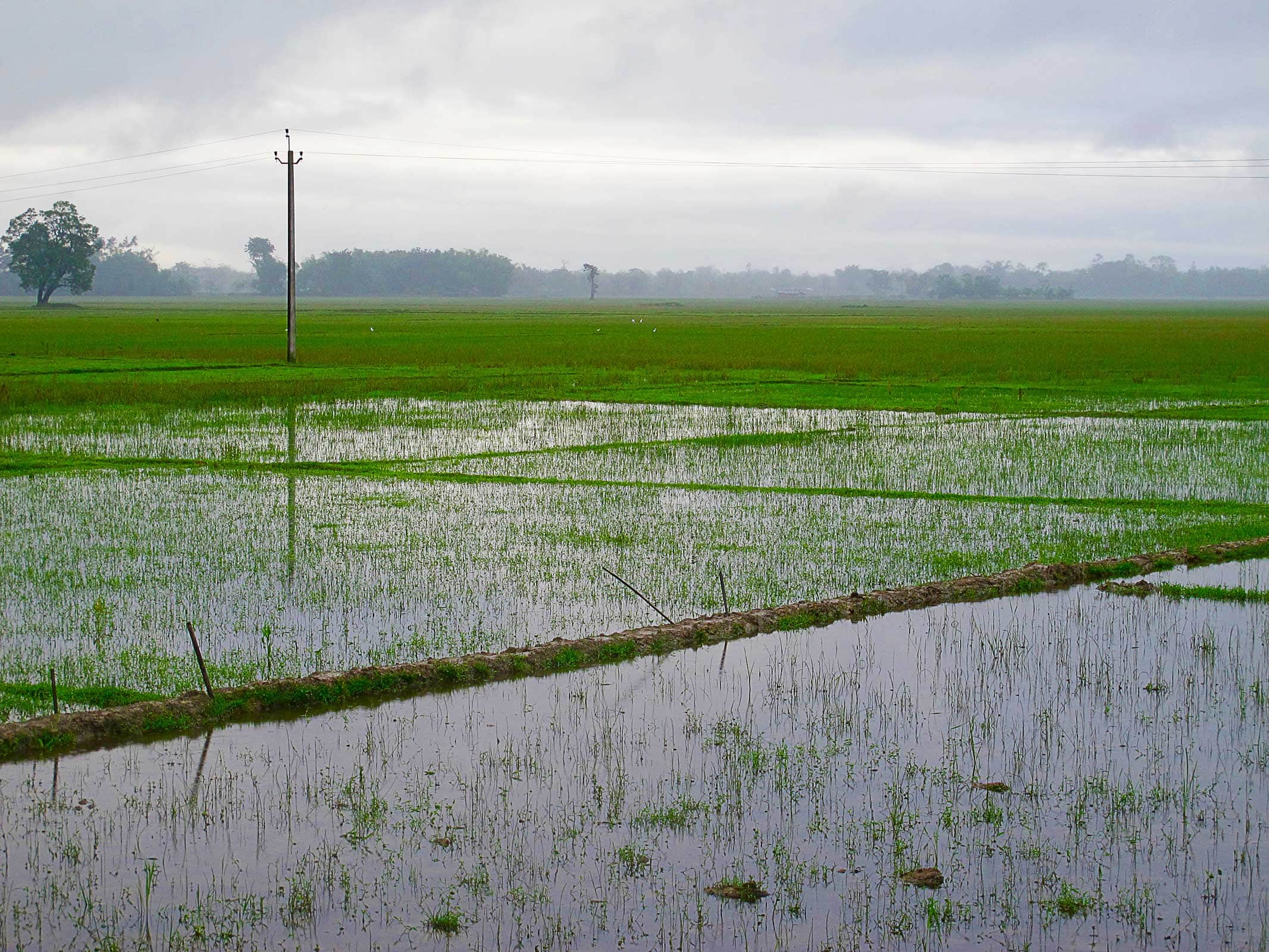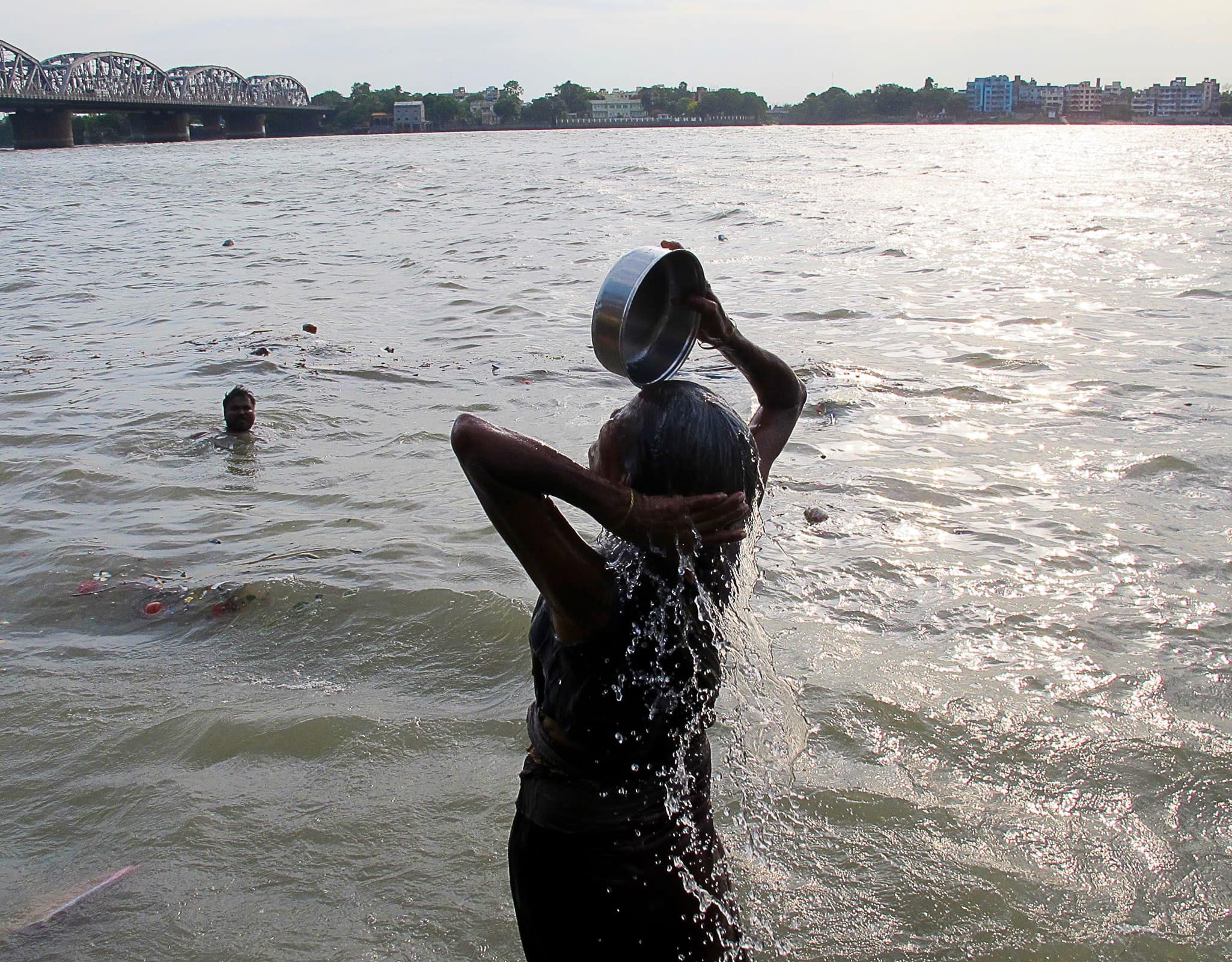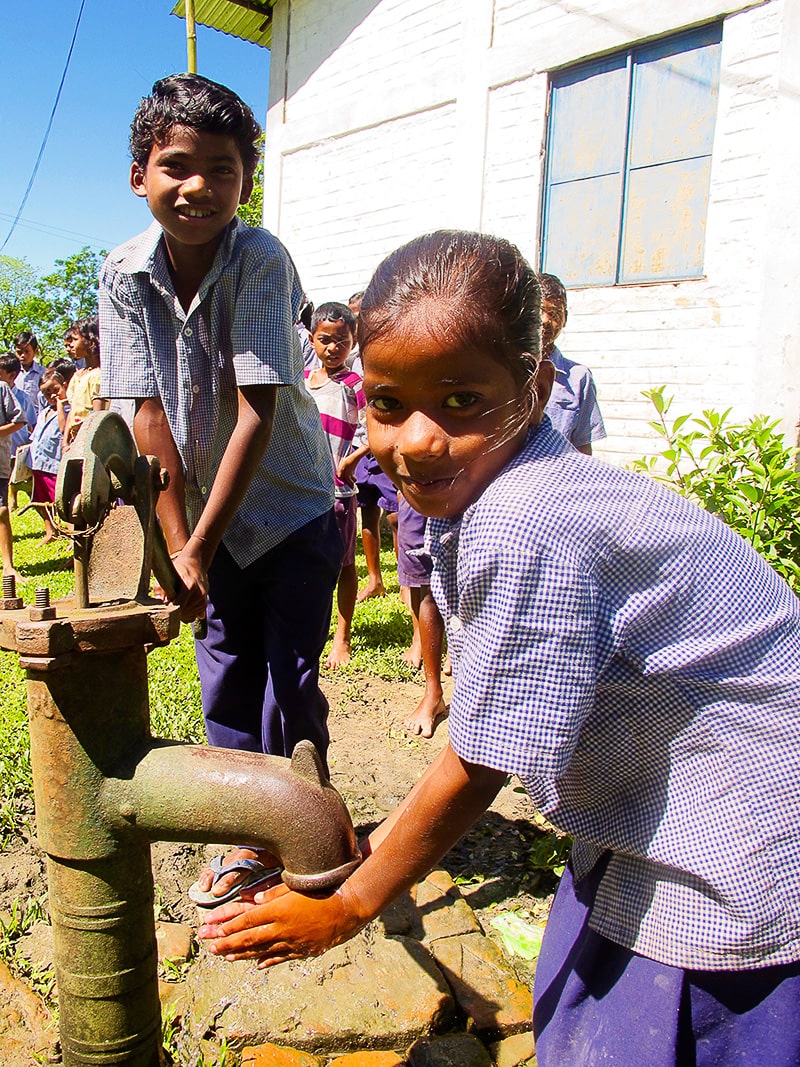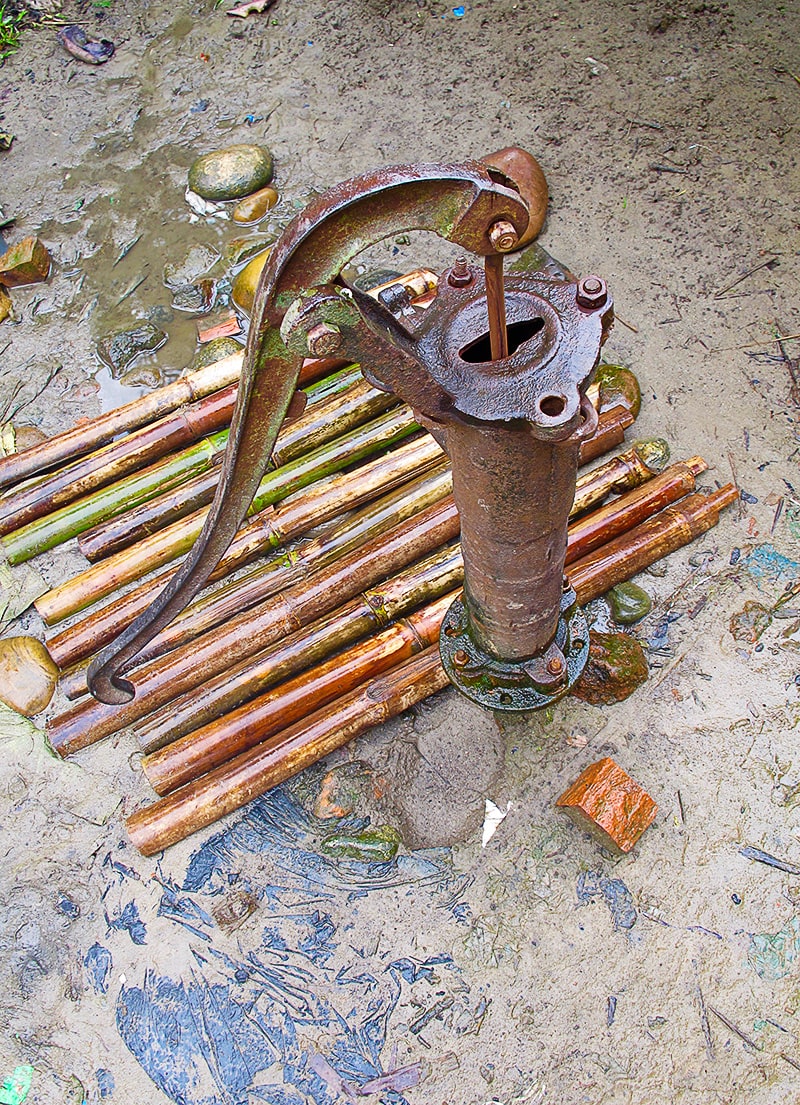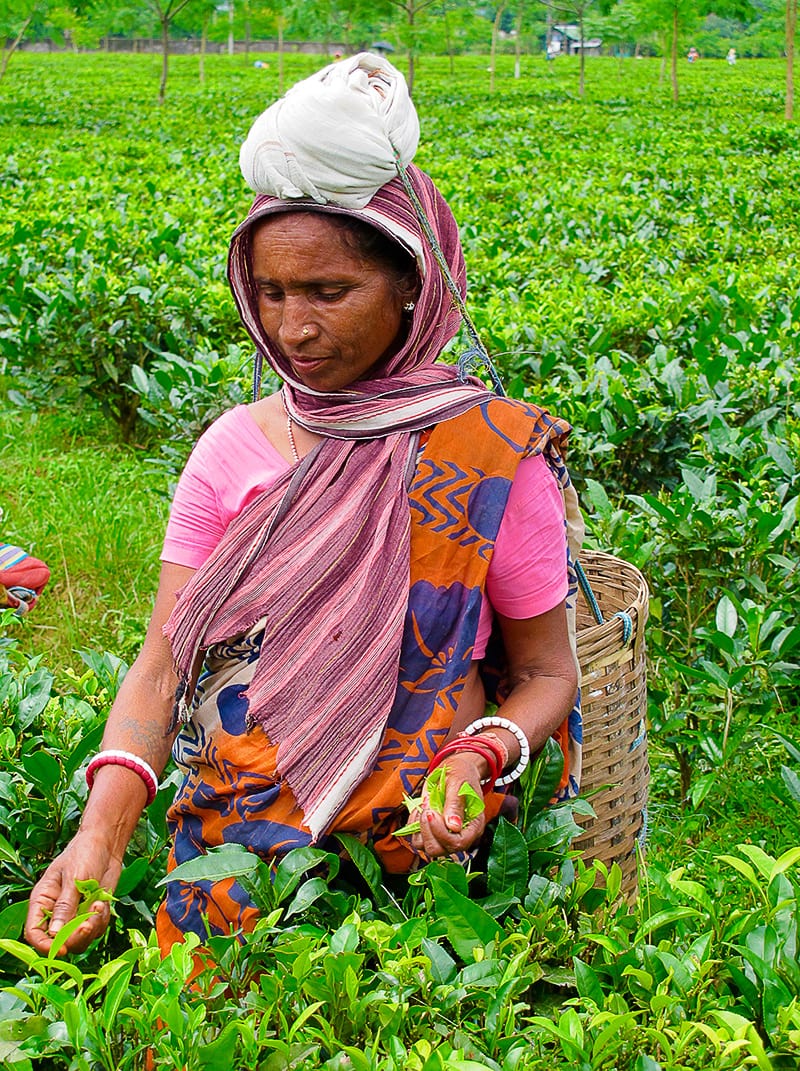Partners:
Numi Organic Tea (Numi Foundation), Chamong Tea Company, and local NGO partners Purva Bharati Educational Trust (PBET) and Social Action for Appropriate Transformation and Advancement in Rural Areas (SATRA)
Goal:
Ensure safe drinking water to the Tonganagaon tea community in Assam State through water, sanitation, and hygiene training, infrastructure improvement, and community capacity building. Tonganagaon is the largest organic, Fair Trade tea community in India and Numi Organic Tea’s largest supplier of organic black tea.
Impact:
- Diarrheal disease rate dropped by approximately 80%—as a result of our efforts, households experiencing waterborne illness and diarrheal disease went from 50% to 11% in the last year
- Work absenteeism rate due to waterborne illness dropped by approximately 90%—before the project, 36% of tea garden staff said they missed work due to diarrheal disease, this has dropped to 4% as a result of our project
- School absenteeism rate due to waterborne illness dropped by 90%—before the project, 20% of families said that their children missed school due to diarrheal disease, this has dropped to 2% as a result of our project
- The rate of safe household handwashing increased by approximately 90%—before the project, only 5% of household handwashing stations were using soap, whereas after the project 53% were using soap
AT A GLANCE
As of 2012, 40% of all government schools in India lacked a functioning common toilet and another 40% lacked a separate toilet for girls.*
The Census-2011 report on water and sanitation says that out of the surveyed households, only 43.5% in India have tap water, 11% have wells, 42% have hand pump/tube wells, and 3.5% have other sources of drinking water.*
Nearly 76 million people in India have no access to a safe water supply.*


THE NEED
While home to Numi Organic Tea’s largest supplier of organic, Fair Trade black tea, Assam in Northern India is one of India’s poorest states in terms of access to safe drinking water and latrines. Fewer than 1 in 15 households have access to tap water. Many women and children walk up to 3 hours per day to collect and carry water for their families, facing security risks, poor health, and barriers to productive livelihoods.
Drinking unsafe water causes diarrheal diseases fatal in infants and children, cholera, typhoid, and other illnesses that decrease people’s access to education and economic opportunities. Without access to latrines or water for washing, many girls drop out of school when they hit puberty. Not surprisingly, Assam also ranks as second highest among India’s 31 states in girls’ dropout rate before the end of primary school, second to last in women’s work participation, third highest in infant mortality rates, highest in women’s anemia, and highest in crimes against women.
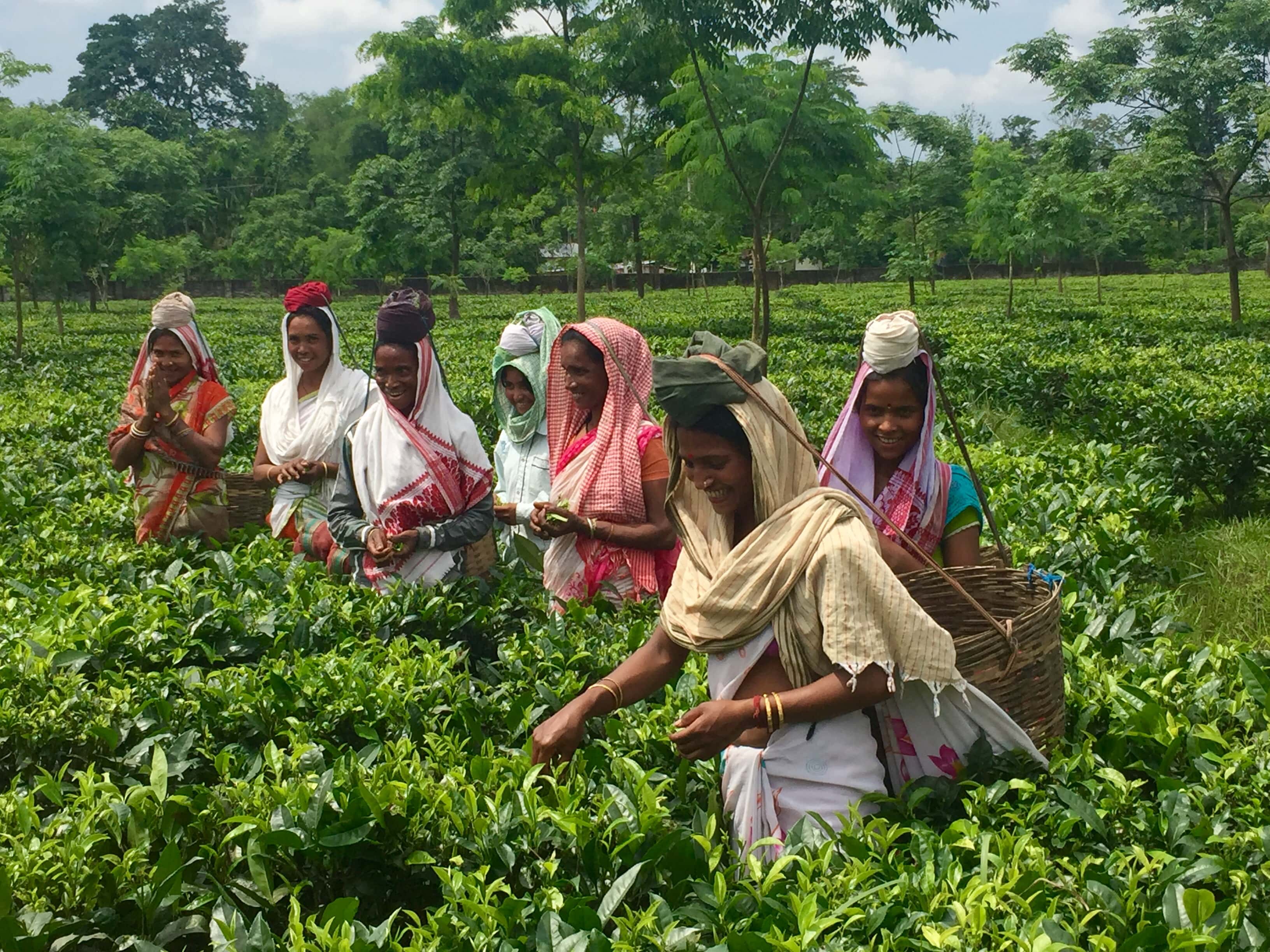
The Project
In its work to bring clean, safe drinking water to all of its tea-farming communities, in 2015, The Numi Foundation launched a water campaign called Together for H2OPE. In 2016, WEA, Numi Foundation, and PBET joined forces to take our shared commitment to increasing communities’ access to safe water and sanitation to the next level.
Together for H2OPE will ensure access to clean and functional water systems for all 6,500 residents of the Tonganagaon Tea community using three coordinated strategies. Our team will implement the following water, sanitation, and hygiene solutions:
- Water Treatment. Help the Tonganagoan community learn how to treat water at the household level through filtration and boiling to eliminate bacterial contamination and iron. This is especially critical during the monsoon season, when contamination levels are the highest.
- Safe Storage. Support community members to safely handle and transport water once it is treated so it does not become re-contaminated, through improved storage containers and practices.
- Upgrade Infrastructure. Provide guidance to Chamong Tea Company, who will be improving existing latrines and constructing 900 new facilities over the next 3 years
- Engage the Community. Implement trainings, demonstrations, and communication interventions that catalyze the community’s adoption of good practices in water management, sanitation, and hygiene. The community will also be supported to implement organizational systems to continue to strengthen behavior change work beyond the life of the project. As the primary family members responsible for water management, women will be particularly supported to provide leadership in drinking water behavior change and community organizing
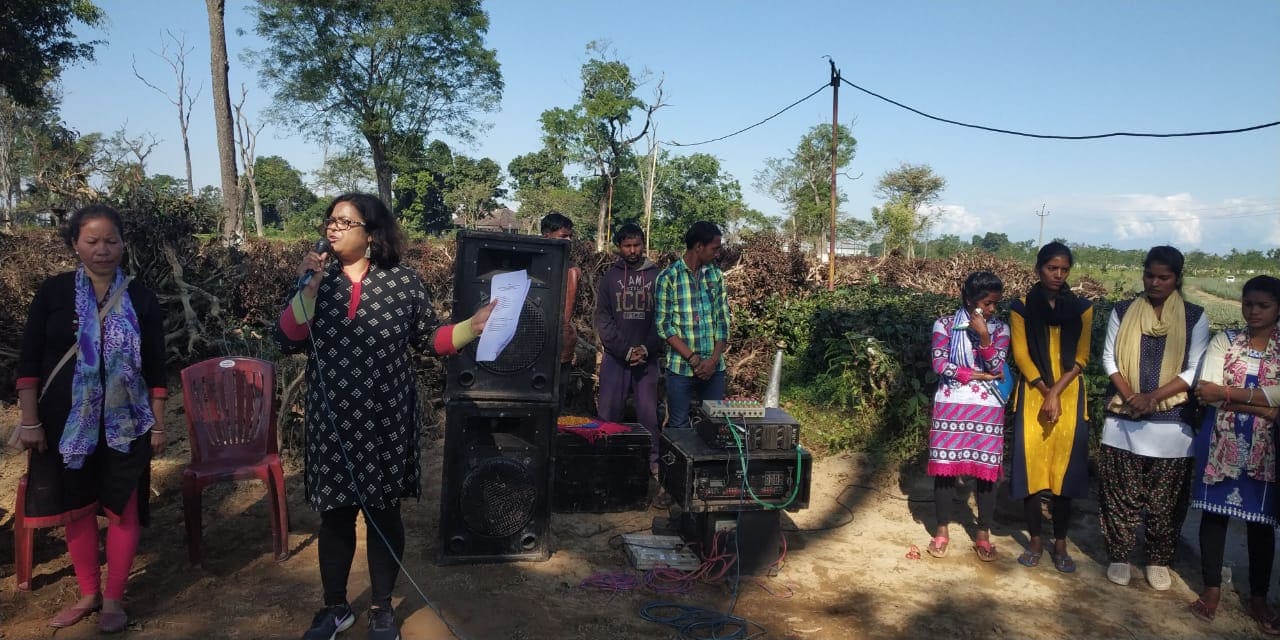
The Plan
Thanks to the visionary leadership of our partners on the ground, Numi Organic Tea and Chamong Tea Company, we have conducted an assessment and established a baseline of living conditions and water infrastructure at Tonganagaon. The next phase of implementation entails working with one model village to establish tools and techniques to be scaled to all 12 villages.
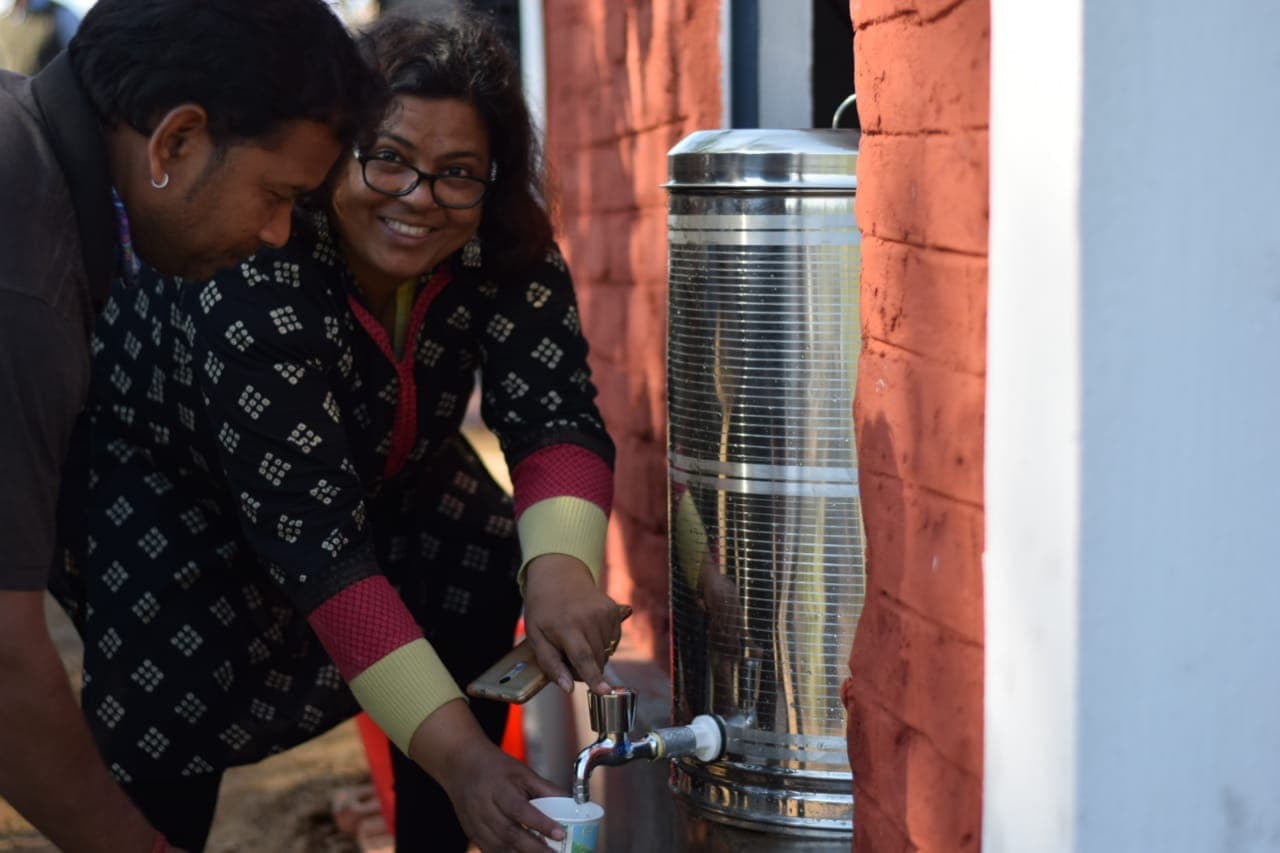
Project Update
During Summer 2018, Together for H2OPE will embark on Phase II of the project to augment the water, sanitation, and hygiene (WASH) investments of Phase I and ensure the project’s sustainability for generations to come. Here is a glance at our progress thus far:
- 1130 permanent households have colloidal silver candle filters and storage containers.
- 10 community WASH agents (volunteers) trained.
- 665 residents attended community meetings.
- 1,000 residents attended awareness rallies conducted across 10 lines.
- 120 residents attended group discussions with youth.
- 589 residents participated in Community Led Total Sanitation (CLTS).
- Each household is exposed to at least 1 filter demonstration, 4 home visits, and 2 awareness events.
